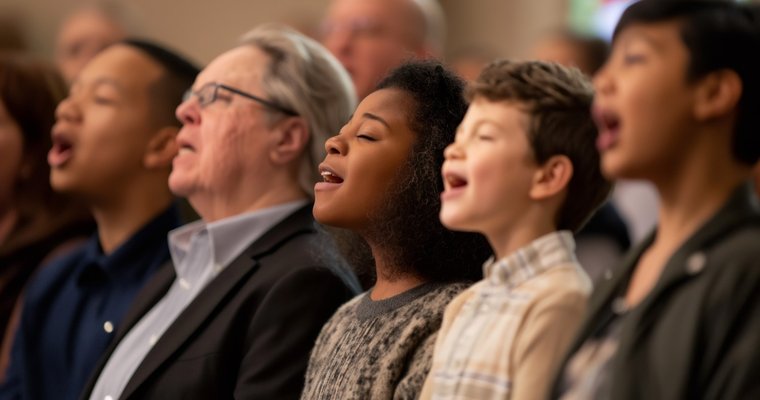Is your church multigenerational or truly intergenerational?

 ChatGPT
ChatGPTThere is untapped power awaiting your ministry if you are willing to take the leap of intergenerational collaboration.
For the past two decades, many churches have embraced multigenerational ministry—several generations coexisting in the same space. Worship services, mentoring relationships, and parallel ministries have emerged that bring young and old together in meaningful ways. Yet coexistence is not enough to revive a church.
Intergenerational collaboration in ministry moves beyond just being in the same building to dynamically working together, sharing power, and reaping the fruit of joint ministry. I have witnessed it dozens of times in declining churches: collaboration across generations can become the catalyst for renewal and rebuilding.
Sadly, many churches are satisfied to stop at multigenerational ministry. Generational cohorts coexist but remain divided—sometimes in different rooms, sometimes in frustrated silence, and often in quiet departure. The outcome is the same: decline. Over time, priceless resources from people to facilities to reputations to funding are overlooked or lost. Whether the church closes its doors or simply ages into irrelevance, the result is tragic.
One way to measure this type of collaboration is by using Roger Hart's Ladder of Participation. This framework shows whether your church is offering token involvement or genuine shared leadership:
- Manipulation – younger voices are used to support a cause, but with no real say.
- Decoration – youth are included for appearance's sake but lack true influence.
- Tokenism – young people are given a "voice," but without the power to affect decisions.
- Assigned but informed– younger members fill roles with clarity and purpose.
- Consulted and informed – their input is sought out and genuinely considered.
- Adult-initiated, shared decisions – adults lead but share in decision-making.
- Young-initiated and directed – young people create and lead projects.
- Young-initiated, shared decisions – young leaders collaborate with adults.
Young-initiated, shared decisions is powerful, but what if we could step up even higher into the selfless principle, "Anyone-initiated, shared decisions"? Imagine the miraculous outcomes in churches where both young and old can initiate ministries together, with joint participation, mutual respect, and shared authority.
Measurable steps toward collaboration
Consider these practical steps to move your church into genuine intergenerational collaboration:
#1 Audit leadership participation
- Track how many committees, teams, or projects include at least two different generations in decision-making roles.
- Set a Goal: 100% of leadership teams should include at least three generations represented.
#2 Evaluate voice vs. influence
- When younger or older members give input, note whether it actually affects decision-making.
- Set a Goal: Within six months, implement at least one new initiative that came directly from a currently under-represented generational cohort.
#3 Set co-leadership structures
- Pair leaders from different generations to co-chair ministries (e.g., a Millennial and a Boomer leading outreach).
- Set a Goal: At least 50% of new ministry initiatives should be co-led intergenerationally.
#4 Create mentorship pathways
- Establish formal mentorship across generations—not only older mentoring younger but also younger mentoring older (reverse mentoring in tech, culture, outreach).
- Set a Goal: Every ministry leader has at least one mentor and one mentee from another generation.
#5 Celebrate shared wins
- Regularly highlight stories where intergenerational collaboration led to growth, outreach, or renewal.
- Set a Goal: Quarterly, share testimonies in worship or newsletters showing collaboration at work.
These measurable practices will help shift your church from coexistence to collaboration which will release the creativity, wisdom, and energy of all generations. In such collaboration lies the power to revive and sustain the church for generations to come.
| Eric Daniel is passionate about empowering others to grow in their Spiritual Leadership. He founded Global Ministry Advance in 2023, a coaching organization, for the purpose of assisting ministers, missionaries and Christian organizations in the development of goals and strategies for greater health. Eric became Senior Pastor of Hillside Church in Napa, CA in 2002, and also serves as an Executive Presbyter for the Northern California and Nevada District Council of the Assemblies of God. Learn More » |
More on Spiritual Growth and Soul Care
- How to give effective staff evaluations (by Charles Stone)
- The most common leadership problem: matching leadership priorities with effort (by Christian Muntean)
- The urgent need for smaller churches (by Thom Rainer)
- Listen, learn, love: the process of transformational leadership (by Tim Tucker)


